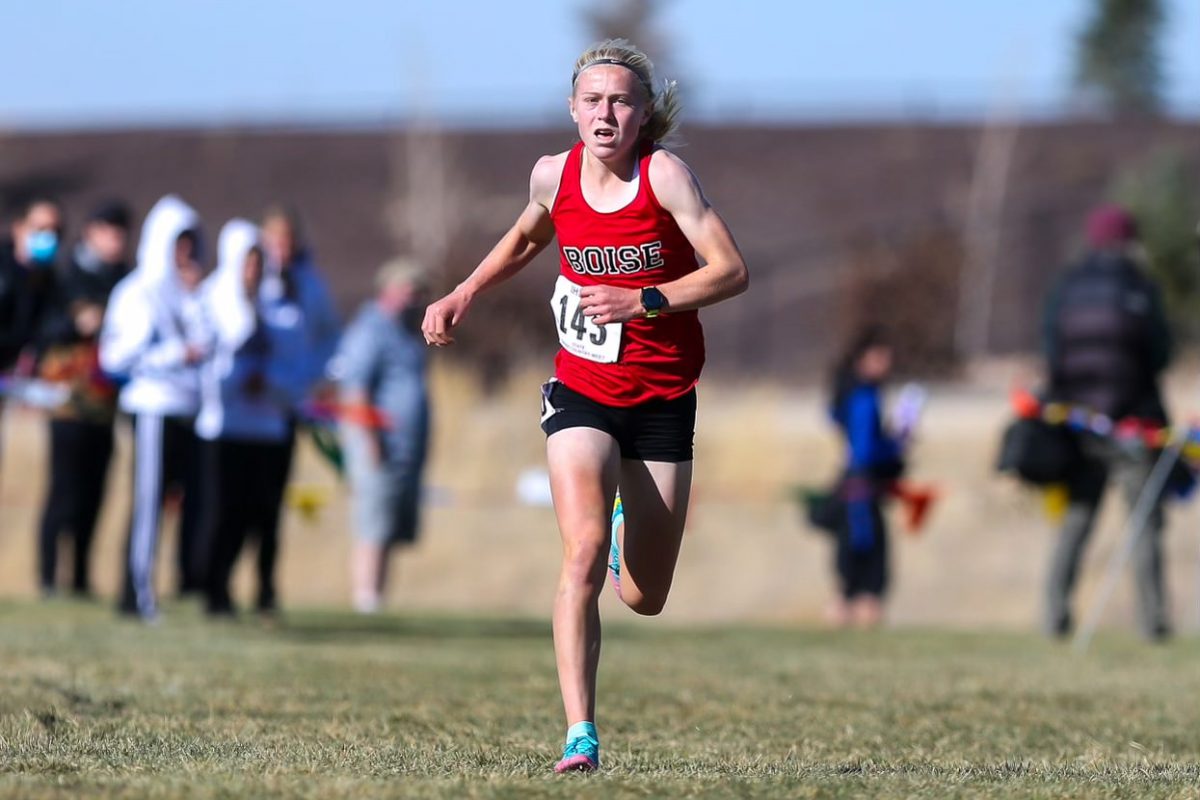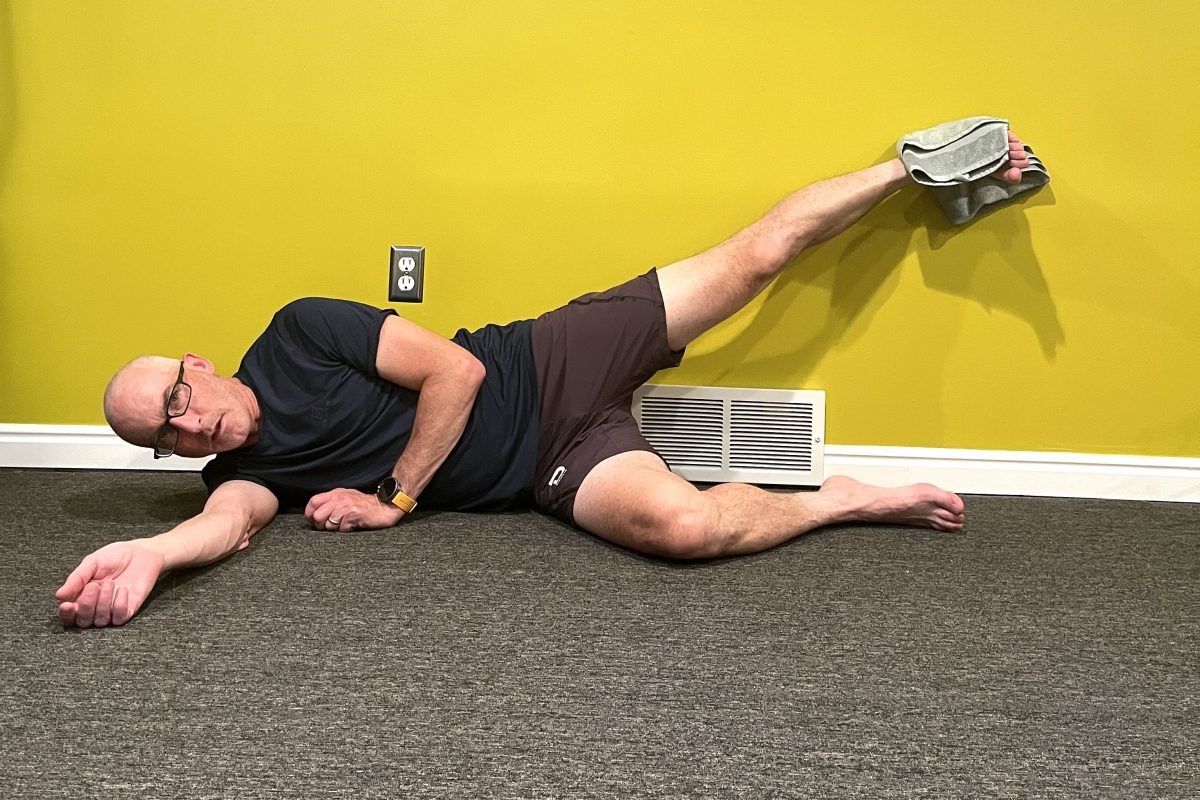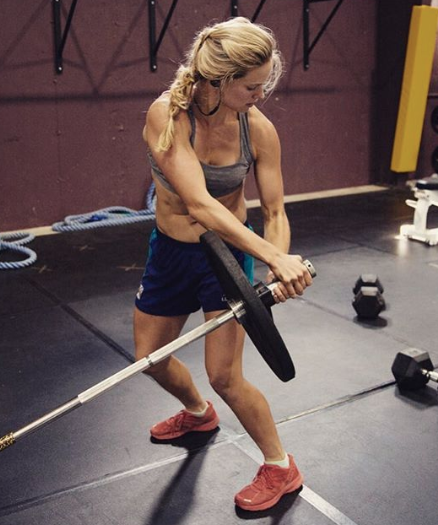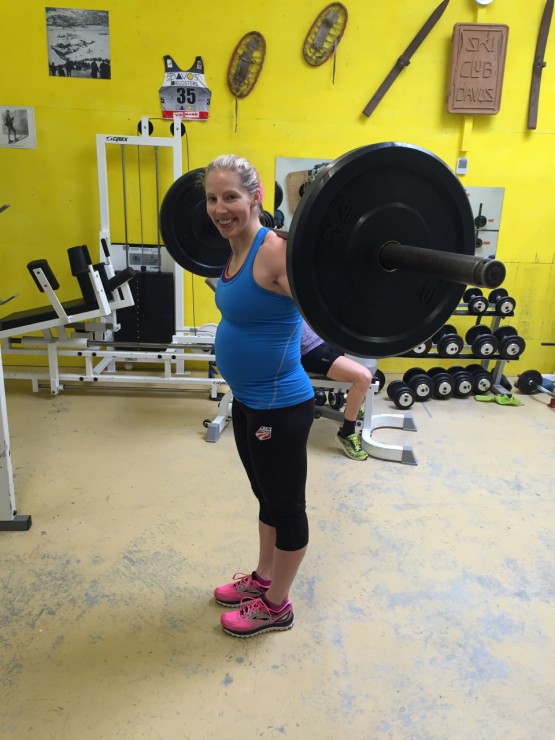
Below is an interview with Kikkan Randall, a three-time Sprint World Cup champion and U.S. Ski Team and Alaska Pacific University skier, who is pregnant with her first child and due in April.This interview originally appeared Feb. 9 on SlowTwitch.com and has been adapted for FasterSkier. SlowTwitch is a comprehensive resource for a wide variety of endurance sports, in particular triathlon, and has recently launched a new feature designed to introduce triathletes to nordic skiing. FasterSkier also recently shared SlowTwitch-original interviews with national champions Eric Packer and Tad Elliott.
***
Kikkan Randall, 33, is the most successful American women’s cross-country skier of all time, winning three Overall World Cup Sprint Titles, a World Championships team sprint, 13 World Cups and countless podium appearances. This has been another exciting year for Randall but in a very different way, as she elected to sit out this racing season in order to start a family. I caught up with her in her home in Alaska to talk about the challenges of training through pregnancy, life away from the World Cup and what’s in store for her moving forward.
Fast Big Dog: What is it like not racing for the first winter in close to 20 years?
Kikkan Randall: It has been weird. It was very hard at the beginning of the racing season. I’ve been doing this for so long that your usual routines start to kick in once it’s time to get ready to leave for Europe in the late fall, but this year I had to keep reminding myself, “Oh that’s right, I’m not going to Europe this year.” That was very strange. Even once the season began and I was watching the races on TV there was this sense in the back of my mind, “OK, you’re not going to be there for the first few….”, but then it finally really set it that I wasn’t going to be racing at all. So it was a lot of adjustment at the beginning, but I am fine with it now. In fact, I think this break has only rekindled my desire to race.
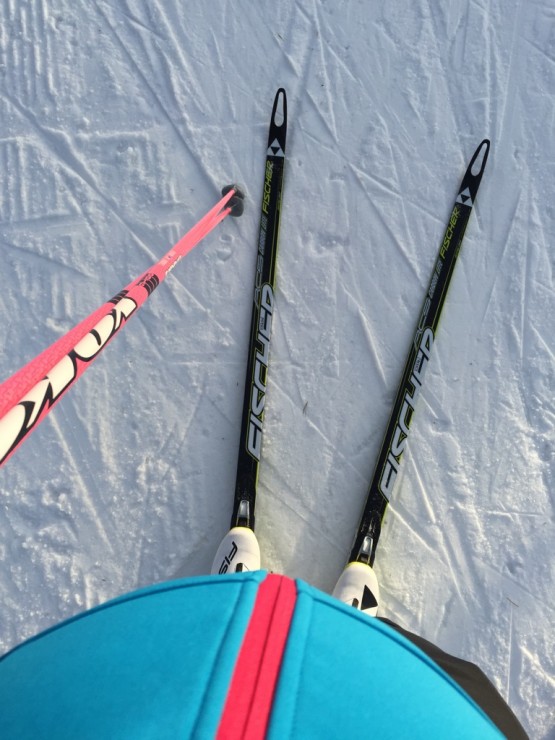
FBD: What’s a typical day for you right now?
KR: I’m at 29 weeks into my pregnancy right now [ed. Randall is currently 33 weeks into her pregnancy], so I’m more than two-thirds of the way there. Each trimester my training and overall routine has shifted, albeit gradually, so it’s hard to describe a “typical day,” as each day is a bit different, especially as I get closer to my due date.
Overall though, everything is going great. My main goal is a healthy baby, so everything is structured around that. I have still been able to get in two workouts/day on most days, but I have been careful to shorten the volume and intensity, in particular the further along I get in the pregnancy. I’m feeling good, but I clearly don’t have as much energy. A 90-minute ski used to be easy, now it’s challenging. So that’s an adjustment for sure.
Another big change is I’ve always followed a structured training plan, but now I’m totally playing it by ear. If I feel good and the skiing is good, I work hard, but if energy is down, I take it easy. I think being flexible is key and I’m being very careful to listen to my body.
Probably the biggest difference between this and previous years is that this year I don’t have to push myself in training, so this is something that I’ve been trying to enjoy. At times it has been a bit of a challenge to find balance, for as a competitive athlete you know how to push yourself and when you hear stuff about other pregnant athletes going out and training hard, you can’t help but wonder if you are doing enough, but every person is different and I feel like I’m right where I should be for the baby, for training, for everything. So overall I’m trying to just relax, enjoy this time and most of all, be smart.
FBD: You were one of the best, if not the best sprint racer in the world for the last several years. Was it a difficult decision was it to have a child at this point in your career?
KR: Not at all. I knew that after Sochi I didn’t want to wait four more years to start a family. This is a year that does not have a World Championships or an Olympics, so the timing made a lot of sense. Every season has something you don’t want to miss, but this season seemed like the best fit. The timing for my return also seemed to work well, so it wasn’t a hard decision at all.
FBD: Do you plan to return to the World Cup after having the baby?
KR: My hope is to have the baby in April, return to normal training by mid-summer, ramp up for the 2016/17 season on the World Cup, then peak for World Championships at the end of the season. Based on how I feel right now fairly far into the pregnancy, I’d say I’m right on track for this, so I’m optimistic. We’ll see, as anything can happen, but so far, so good.
FBD: After you return, how many more years do you plan on racing on the World Cup?
KR: Right now I’ve set the endpoint as the 2018 Olympics, but we’ll see. I’ve had a great run and I still love racing, but I have lots of other goals in life, too, and part of a great career is knowing when to call it quits. I’m going to finish school, probably have a few more kids and I’m looking forward to putting all of my energy into my family. My husband Jeff is amazing — the focus has all been on me these last few years, so I’m excited for him to be able to pursue some more things as well.
FBD: I know firsthand just how difficult and taxing European travel can be. How will you manage the additional demands of having a young baby while racing World Cups in Europe?
KR: Jeff and I have thought about this a lot. I want to be a part of the team but I don’t want to be disruptive. Jeff works with FIS (International Ski Federation), so thankfully I’m not over there in Europe alone. We’ll go over to Europe early next year as a family and both sets of parents have agreed to come over and help out, which will be huge. I may even look for a U.S. college student to serve as a part-time nanny, so while it’s a lot to figure out, we’ve got some time and we’ve got some good options.
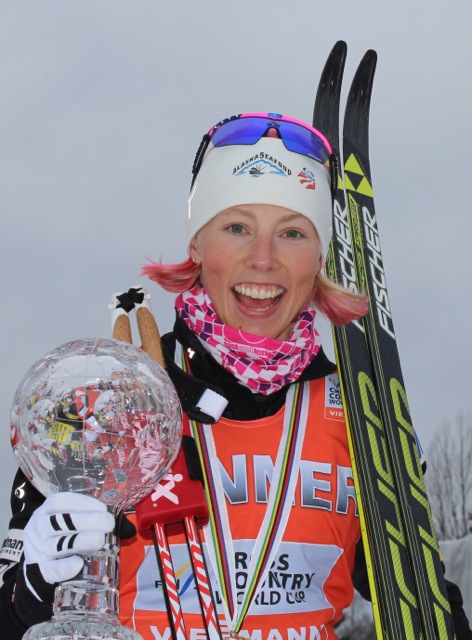
FBD: Do you think the baby will be an added distraction or an asset to your racing?
KR: Initially it will be an adjustment, for sure: different sleep pattern and lots of other things that can disrupt training, so I may not be able to do everything absolutely perfectly. However, when you’re just ski racing it can be easy to lose sight of what really matters, so having something that is bigger and more important than skiing can really help you find balance and perspective. I’ve talked to lots of the other girls who’ve come back after having babies and they’ve said that the baby has made them appreciate racing more. Like everything else, I’m sure it will come with tradeoffs, but I think overall the implications on my racing will be a positive. More importantly, in the big picture, what the baby means to Jeff and me almost goes without saying, so even if it is a distraction from time to time, I’m sure it’ll be worth it.
FBD: We have lots of readers who train through pregnancy and resume racing not long after childbirth, please take us through your plan to managing all of these challenges.
KR: Well, my overall plan all started with my plan through pregnancy. The advice that was given to me is that while pregnant, you can continue at the level to which you are accustomed. For me, that meant my first month was completely normal. In fact, I didn’t even know I was pregnant in the first month. In the second month, I cut my training volume by about 25 percent.
My number one goal is a healthy baby, so I’ve been very careful this entire time to never push myself to my limit. I kept a pretty normal schedule early on though: I went to team training camps, did intervals, etc. Fairly normal stuff. I was fighting fatigue more than usual, but I only missed one session. I also often didn’t feel good waking up, but I would go out to see how I felt. More often then not, once I got going, I felt better. I’m certain that training actually helped me feel better during this part of the pregnancy, in particular since I was smart and cautious.
In my second trimester, much of the fatigue and queasiness went away. I dialed back my hours a bit more too, which I’m sure helped. A three-hour training day used to be no big deal, but it now felt like it was too much, so I generally capped sessions at 2 or 2.5 hours.
Now that I’m in my third trimester, I’m still feeling good but I’m definitely taking it much easier — more time off, lots of recovery and a very cautious, day-to-day approach to training. Overall though I feel like my body is in a good place. I’ve done a good job maintaining fitness and strength and I believe I have set the stage for a healthy, happy baby and a good return to racing.
Probably the biggest change was I shifted my strength training from peak strength to maintenance. I’ve been training for more general strength and less explosive power. This not only puts me at lower risk for injury, but I think it also makes sense from a fitness perspective, for developing a healthy baby and for building a good base for my return.
My strategy when I resume racing will be the same: listen to my body and be smart. This is uncharted territory so I don’t feel like I can comment too much on what it will be like post-baby until I’m actually there, so I’m just doing the best I can now to be well prepared.
FBD: What is your advice to other women in this situation?
KR: It was really smart for me to not deviate to much from the normal Kikkan — I tried to just be me. I’ve been lucky to not have complications, which can change everything, but keeping my routine as close to normal as possible has helped a lot. I’m feeling good and I encourage other women who have been active prior to pregnancy to not feel like they need to make major changes: don’t push it, but keep to your general routine. Be confident. You don’t have to give up everything to have a child. Sure you need to make changes, but that’s okay, in fact it is great. And certainly don’t be afraid to rest.
I’m glad you asked this question, too, as one of the things that I’ve noticed in my many years on the World Cup is that it is now much more accepted for women to return to racing after having a child and I think this is a great thing, not just in skiing, but everywhere. I know of four other skiers who are currently out on maternity leave who plan on racing next year and I hope that all of us can serve as examples for women in all types of careers. I’m very happy that we’re seeing a bit of a shift where people don’t have to decide between career and family. The same is true to some degree for male athletes who want to start families. I’d like to see everyone get more support here but it’s nice to see things moving in the right direction.
“It was really smart for me to not deviate to much from the normal Kikkan — I tried to just be me.” — Kikkan Randall, on being pregnant
FBD: What has been the most difficult part of this process thus far?
KR: The hardest part has been not being with the team. I miss them. I’m also used to feeling improvement in my skiing, so going the opposite way is tough. The added body weight makes everything harder even though I understand the reason why. It does give me greater appreciation for the role of excess body weight and it has me very motivated to getting my pre-baby body back.
FBD: This season has been a breakout year for a few of the other women on the team and you are widely credited as the person that set the tone for the entire U.S. cross-country team. Your work ethic, attitude and results have raised the bar to the point that the standard is now nothing short of the top of the podium. How does this make you feel?
KR: I’m excited and honored to be looked at in this manner. I could tell in training that there was a new level of confidence and maturity in the team this season. A lot of them are coming into that magical age range of 24 – 27: they now have lots of hours training, more experience racing and I could just see everyone developing the recognition that they could be at the top soon if they kept working hard. I was actually incredibly nervous watching them race — way more nervous than when I’m racing — which is kinda funny. I guess it was because I knew that everyone was so close. So yes, certainly I was very excited to see the results at the Tour de Ski and elsewhere, but to be honest, I kind of knew it was coming.
FBD: You’ve traveled the world for over a decade with the U.S. Ski Team. You’ve seen some beautiful places and experienced many different countries and cultures. When everything is said and done and you put the final bow on the racing career, where do you think you will settle down?
KR: Great question. Tricky question. In racing you have very clear goals and objectives: you have key races, a training plan to get you ready for those races and life can be mapped out literally years in advance. Then your career ends and you’re thinking, “OK, now what?” It’s an interesting discussing. We love Alaska, but it’s a big world out there, so we’re excited to look at some new opportunities as a family. It’s fun looking ahead, discussing options and seeing where life will take us.
FBD: Last question — I know interesting and unique baby names are all the rage these days, so have you and Jeff considered naming the child Fast Big Dog? I’m not sure if the kid will be able to find those little mini license plates that they sell in the gift shops at Disney World, but it will certainly be a name that stands out, and in a very, strong, independent way. That’s a very Alaska thing, right?
KR: (Laughing) Well, hmmm, we’re actually talking about names right now, so I promise we’ll give that very careful consideration.

